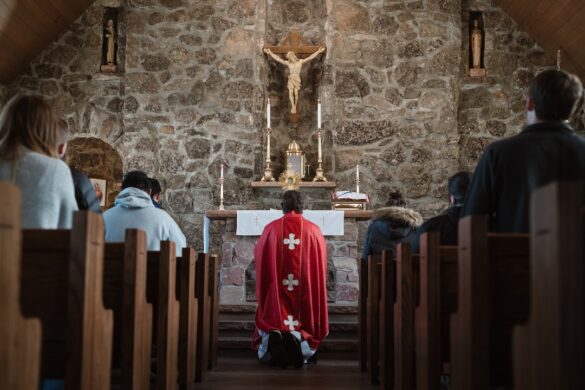Understanding the Core Beliefs of Islam: The Five Pillars that Define Muslim Worship
Islam, the world’s second-largest religion, has a set of core beliefs that define the life and worship of Muslims. These central tenets, known as the Five Pillars of Islam, provide Muslims with a framework for their faith, guiding them in their daily lives and connecting them to their creator, Allah. In this blog post, we will explore each pillar and its significance in Muslim worship.
1. Shahada: The Declaration of Faith
The Shahada is the first pillar and the most fundamental belief in Islam. It serves as a clear declaration of the unity of Allah and the prophethood of Muhammad. Muslims recite the Shahada, saying, “La ilaha illa Allah, Muhammad rasool Allah,” which translates to “There is no deity but Allah, and Muhammad is the Messenger of Allah.” By professing this statement, Muslims affirm their faith and submit themselves to Allah’s will.
The Shahada forms the foundation upon which the other pillars are built, emphasizing the importance of monotheism and recognizing the role of Prophet Muhammad as the final messenger.
2. Salah: The Ritual Prayer
Salah, or ritual prayer, is an integral part of a Muslim’s daily life. Muslims are obligated to perform five daily prayers, known as Salah, at specific times throughout the day. These prayers provide moments of contemplation and connection with Allah, fostering a sense of spiritual discipline and mindfulness.
Salah involves physical and mental submission, where Muslims turn towards the Kaaba in Mecca, the holiest site in Islam, and engage in a series of prostrations, recitations, and supplications. Through Salah, Muslims seek purification and seek guidance from Allah in their daily lives, fostering a deeper connection and reliance on their creator.
3. Zakat: The Act of Giving
Zakat, an Arabic term meaning ‘purification’ or ‘growth,’ is the pillar of charity in Islam. Muslims are required to give a portion of their wealth to help those in need and alleviate poverty within their community. This obligation stems from the recognition that one’s wealth is a blessing from Allah and should be shared to maintain social justice and compassion.
Zakat serves both a spiritual and societal purpose, encouraging Muslims to purify their wealth and reminding them of the importance of generosity and empathy. By giving a percentage of their wealth, Muslims fulfill their duty to contribute to the welfare of the less fortunate and strengthen the bonds of their community.
4. Sawm: Fasting in Ramadan
Sawm, or fasting, is observed during the holy month of Ramadan, which commemorates the revelation of the Quran to Prophet Muhammad. From dawn to sunset, Muslims abstain from food, drink, and other physical needs, focusing instead on prayer, reflection, and charity.
Fasting during Ramadan provides an opportunity for self-discipline, self-reflection, and heightened spirituality. It allows Muslims to empathize with those who are less fortunate and develop a sense of gratitude for the blessings they possess. Sawm serves as a time for Muslims to detach from worldly desires and focus on their relationship with Allah, seeking forgiveness and spiritual rejuvenation.
5. Hajj: The Pilgrimage to Mecca
Hajj, the pilgrimage to the holy city of Mecca, is the fifth pillar of Islam and a once-in-a-lifetime obligation for Muslims who are physically and financially able. Each year, millions of Muslims from around the world gather to perform a series of rituals commemorating the life of Prophet Ibrahim and his family.
Hajj serves as a symbol of unity and equality, where Muslims of diverse backgrounds and nationalities come together in a shared spiritual journey. Through the rituals of Hajj, Muslims affirm their submission and devotion to Allah, seeking forgiveness and spiritual transformation.
In conclusion, the Five Pillars of Islam play a significant role in defining Muslim worship and guiding their spiritual journey. Through the declaration of faith, prayer, charity, fasting, and pilgrimage, Muslims demonstrate their commitment to Allah and their desire to lead righteous lives. These pillars provide Muslims with a framework to connect with their creator and establish a comprehensive understanding of their faith, ultimately fostering spiritual growth and deepening their relationship with Allah.

